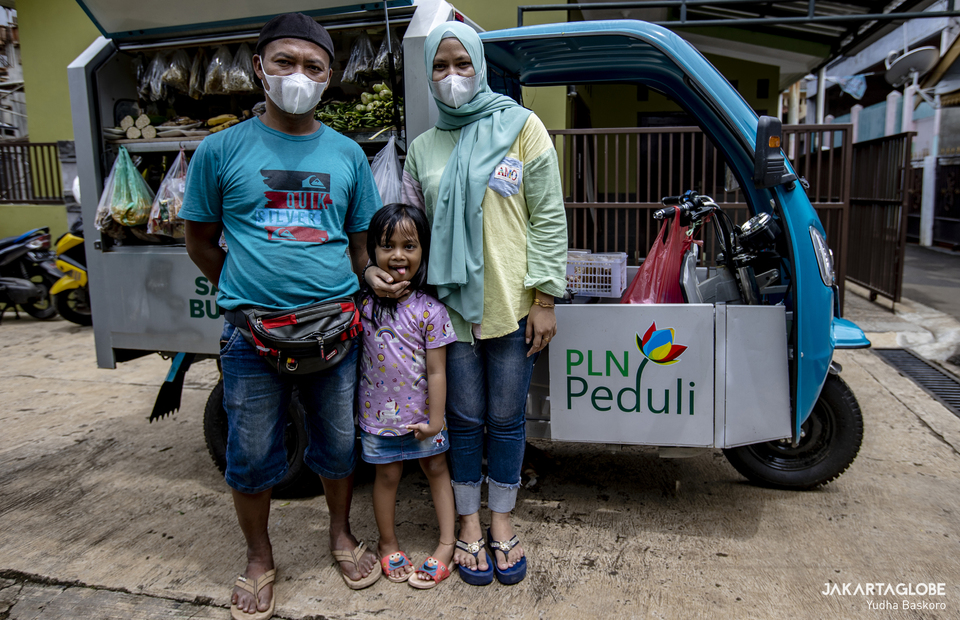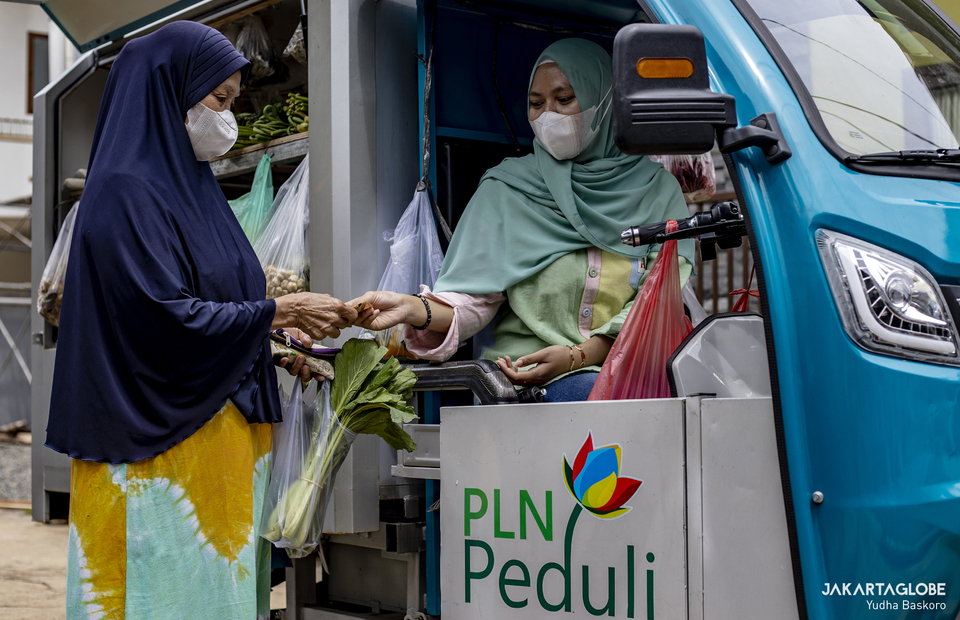www.aljazeerah.info
Opinion Editorials, February 2022
Archives
Mission & Name
Conflict Terminology
Editorials
Gaza Holocaust
Gulf War
Isdood
Islam
News
News Photos
Opinion Editorials
US Foreign Policy (Dr. El-Najjar's Articles)
www.aljazeerah.info
No More Pushing: This Indonesian Street Vendor Sells Vegetables on Electric Cart By Yudha Baskoro February 7, 2022 |
 |
|
|
Yuni and her family pose for the Jakarta Globe in front of their
electric cart in Srengseng Sawah, South Jakarta on January 20, 2022. (JG Photo/Yudha Baskoro) |
Yuni serves a customer in Srengseng Sawah, South Jakarta on January 20, 2022. (JG Photo/Yudha Baskoro) |
 |
 |
|
Yuni rides her electric cart near a neighborhood area in Srengseng Sawah, South Jakarta on January 20, 2022. (JG Photo/Yudha Baskoro) |
Yuni puts her customer's groceries in a plastic bag in Srengseng Sawah, South Jakarta on January 20, 2022. (JG Photo/Yudha Baskoro |
No More Pushing: This Street Vendor Sells Vegetables on Electric Cart
BY :YUDHA BASKORO
Jakarta Globe, JANUARY 23, 2022
Jakarta. The cloudy weather did not stop Siswanto and Yuni Wahyuningsih óthe owner of Pasar Keliling Bu Tarmió from peddling their wares in a narrow alley in Srengseng Sawah, South Jakarta on Thursday.
But there is something that sets Sarling Bu Tarmiís cart apart from the rest. Unlike other street vendors, Yuni and her husband no longer sell their vegetables on a traditional pushcart.
The cart, which is the familyís source of income, has now gone electric, thanks to the state-owned utility company Perusahaan Listrik Negara (PLN).
ďWe have used this vegetable cart for a long time, but now we donít need to push it anymore. Just plug it in at home and we can sell vegetables all day long,Ē Yuni said.
The now electric cart will enable Yuni to travel further without getting tired.
"We intend to increase our selling range during the fasting month. We intend to travel a little further. Using this electric cart will not be exhausting," Yuni said, while hoping the cart could increase her turnover which currently stands at Rp 2.5 million (about $174) a day.
This innovation is part of PLNís corporate social responsibility program.
PLNís electric cart aims to not only boost productivity for micro and small enterprises (MSEs), but also build the battery-powered electric motor vehicle ecosystem in Indonesia.
It will enable MSEs to save energy and fuel while being environment-friendly.
PLN has provided at least 12 electric carts to MSEs.
***
Share the link of this article with your facebook friends
|
|
|
|
||
|
||||||



